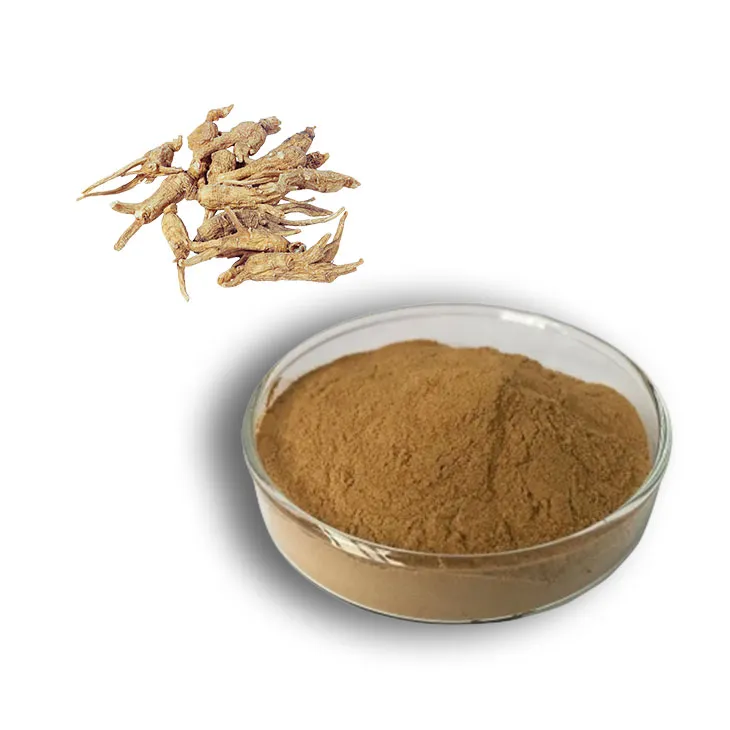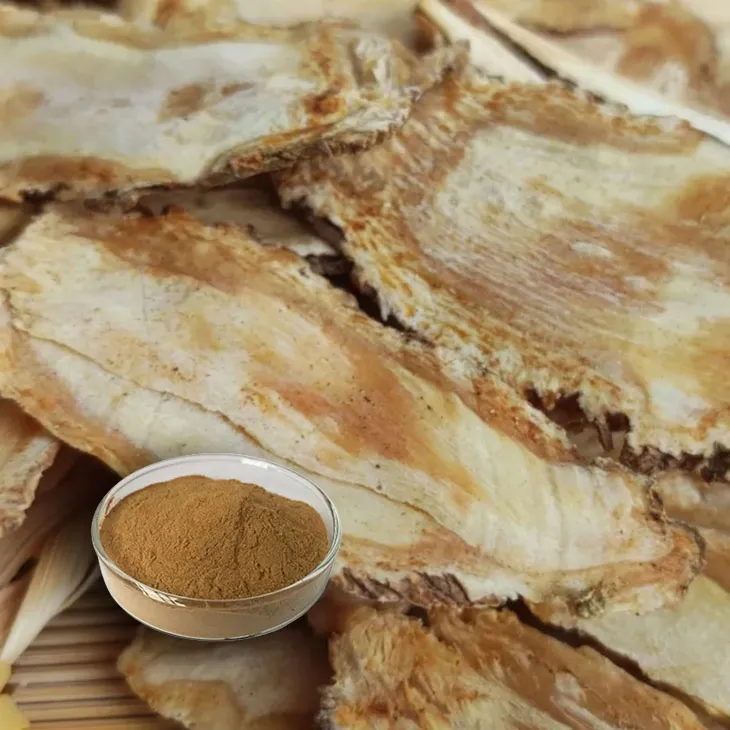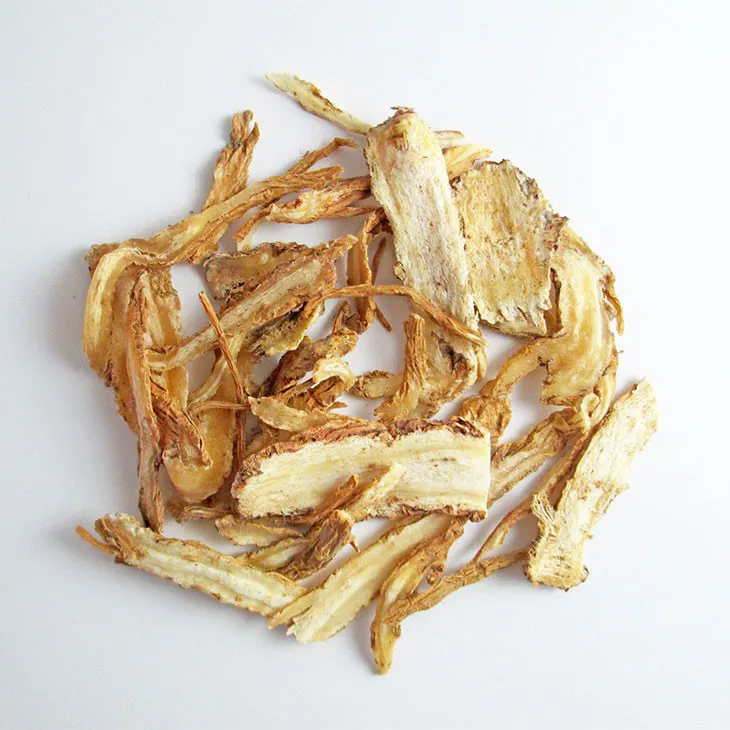- 0086-571-85302990
- sales@greenskybio.com
4 Things Consumers and Manufacturers Should Know about Angelica Sinensis Extract
2024-12-22

1. Production of Angelica sinensis extract
A. Raw Material Sourcing
- Angelica Sinensis, also known as Dong Quai, is a plant native to China. Manufacturers need to ensure that the raw materials are sourced from reliable suppliers. The quality of the soil, climate conditions, and cultivation methods in the growing area can significantly affect the quality of the Angelica Sinensis. For example, plants grown in areas with rich soil and proper sunlight exposure are likely to have higher concentrations of active compounds.
- Sustainable sourcing is also becoming increasingly important. Over - harvesting can lead to a decline in the availability of Angelica Sinensis in the wild. Some manufacturers are now promoting cultivation methods that are environmentally friendly and ensure the long - term availability of the plant.
B. Extraction Process
- There are different methods for extracting Angelica sinensis extract, such as solvent extraction and supercritical fluid extraction. Solvent extraction is a commonly used method, where solvents like ethanol or methanol are used to dissolve the active compounds from the plant material. However, the choice of solvent needs to be carefully considered as it can leave residues that may be harmful if not removed properly.
- Supercritical fluid extraction, on the other hand, uses supercritical carbon dioxide as the solvent. This method has the advantage of being more environmentally friendly and can produce a purer extract with fewer residues. Manufacturers need to optimize the extraction process to ensure high yields of active compounds while maintaining the quality and safety of the extract.

2. Potential Side - Effects
A. Allergic Reactions
- Some individuals may be allergic to Angelica sinensis extract. Symptoms of an allergic reaction can include skin rashes, itching, swelling, and in severe cases, difficulty breathing. People with a known allergy to plants in the Apiaceae family (which Angelica Sinensis belongs to) are at a higher risk of having an allergic reaction.
- Before using any products containing Angelica Sinensis Extract, consumers should perform a patch test on a small area of skin to check for any adverse reactions. If any signs of allergy occur, they should discontinue use immediately and seek medical advice.
B. Interaction with Medications
- Angelica Sinensis Extract may interact with certain medications. For example, it has blood - thinning properties, so it can interact with anticoagulant medications such as warfarin. Taking Angelica Sinensis Extract along with these medications may increase the risk of bleeding.
- It can also interact with medications that are metabolized by the liver, as some compounds in the extract may affect liver enzyme activity. Consumers who are taking any medications should consult their healthcare provider before using Angelica Sinensis Extract - containing products.

3. Effectiveness of Angelica Sinensis Extract
A. Traditional Medicinal Uses
- In traditional Chinese medicine, Angelica Sinensis has been used for centuries to treat various conditions. It is often used to regulate menstrual cycles in women. It is believed to help relieve menstrual cramps, reduce irregularities in the menstrual cycle, and improve overall reproductive health.
- It is also used for its potential blood - building properties. In traditional medicine, it is thought to nourish the blood and improve circulation, which may be beneficial for people with anemia or poor blood circulation.
B. Modern Scientific Research
- Modern scientific research on Angelica Sinensis Extract is ongoing. Some studies have shown that it may have antioxidant properties. Antioxidants are important for protecting the body against oxidative stress, which is associated with various diseases such as cancer, heart disease, and neurodegenerative disorders.
- There is also some evidence suggesting that certain compounds in the extract may have anti - inflammatory effects. However, more research is needed to fully understand the mechanisms of action and to confirm its effectiveness in treating specific diseases.

4. Regulatory Compliance
A. Food and Dietary Supplement Regulations
- In many countries, Angelica Sinensis Extract is sold as a dietary supplement. As such, it is subject to food and dietary supplement regulations. These regulations typically require manufacturers to ensure the safety and quality of the product. Manufacturers need to label their products accurately, including information about the ingredients, recommended dosage, and any potential side - effects.
- In the United States, for example, dietary supplements are regulated by the Food and Drug Administration (FDA) under the Dietary Supplement Health and Education Act (DSHEA). Manufacturers are required to follow good manufacturing practices (GMP) to ensure the identity, purity, strength, and composition of their products.
B. Cosmetic Regulations
- When Angelica Sinensis Extract is used in cosmetic products, it is subject to cosmetic regulations. These regulations are mainly concerned with the safety of the product for topical use. Manufacturers need to conduct safety assessments to ensure that the extract does not cause any adverse skin reactions.
- In the European Union, for example, cosmetic products are regulated by the Cosmetics Regulation. Cosmetic manufacturers using Angelica Sinensis Extract need to comply with the requirements regarding ingredient safety, product labeling, and notification procedures.
FAQ:
Q1: What is Angelica Sinensis Extract?
Angelica Sinensis Extract is derived from the Angelica Sinensis plant. It has been used in traditional medicine for various health - related purposes. It contains active compounds that are believed to have certain biological activities.
Q2: How is Angelica Sinensis Extract produced?
The production process typically involves harvesting the Angelica Sinensis plant, then using methods such as drying and extraction. The extraction may be done using solvents to isolate the active components. Quality control during production is crucial to ensure the purity and potency of the extract.
Q3: What are the potential side - effects of Angelica Sinensis Extract?
Some potential side - effects may include allergic reactions in sensitive individuals. It may also interact with certain medications. Additionally, excessive use might lead to gastrointestinal discomfort, such as nausea or diarrhea. However, more research is needed to fully understand all possible side - effects.
Q4: How effective is Angelica Sinensis Extract?
Research has suggested that it may have some effectiveness in areas such as improving blood circulation and relieving menstrual discomfort. However, the evidence is not always conclusive. Some studies show positive results in vitro or in small - scale human trials, but larger, more comprehensive studies are often required to confirm its effectiveness for different health claims.
Q5: What regulatory compliance should manufacturers follow?
Manufacturers should comply with relevant food and drug regulations. This includes ensuring proper labeling, meeting safety and quality standards, and obtaining necessary approvals. In different regions, there may be specific regulations regarding the production, marketing, and use of Angelica Sinensis Extract.
Related literature
- The Pharmacological Properties of Angelica Sinensis Extract"
- "Production and Quality Control of Herbal Extracts: A Case of Angelica Sinensis"
- "Safety Evaluation of Angelica Sinensis Extract in Dietary Supplements"
- ▶ Hesperidin
- ▶ citrus bioflavonoids
- ▶ plant extract
- ▶ lycopene
- ▶ Diosmin
- ▶ Grape seed extract
- ▶ Sea buckthorn Juice Powder
- ▶ Beetroot powder
- ▶ Hops Extract
- ▶ Artichoke Extract
- ▶ Reishi mushroom extract
- ▶ Astaxanthin
- ▶ Green Tea Extract
- ▶ Curcumin Extract
- ▶ Horse Chestnut Extract
- ▶ Other Problems
- ▶ Boswellia Serrata Extract
- ▶ Resveratrol Extract
- ▶ Marigold Extract
- ▶ Grape Leaf Extract
- ▶ blog3
- ▶ blog4
- ▶ blog5
-
Fenugreek Extract Powder
2024-12-22
-
Eucommia Ulmoides Extract
2024-12-22
-
White Peony Extract
2024-12-22
-
Cranberry Extract
2024-12-22
-
Cactus Extract
2024-12-22
-
Phyllanthus Emblica Extract
2024-12-22
-
Nettle leaf extract
2024-12-22
-
Grape Leaf Extract
2024-12-22
-
Konjac Powder
2024-12-22
-
Lemon Balm Extract
2024-12-22





















